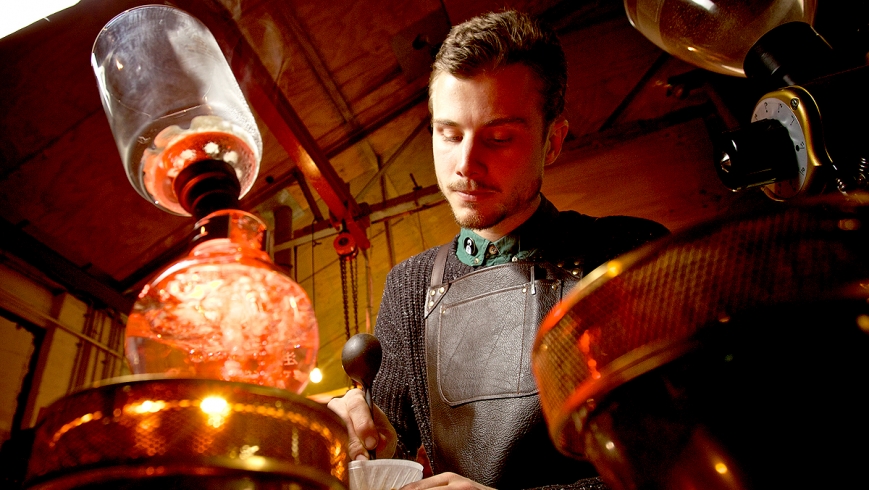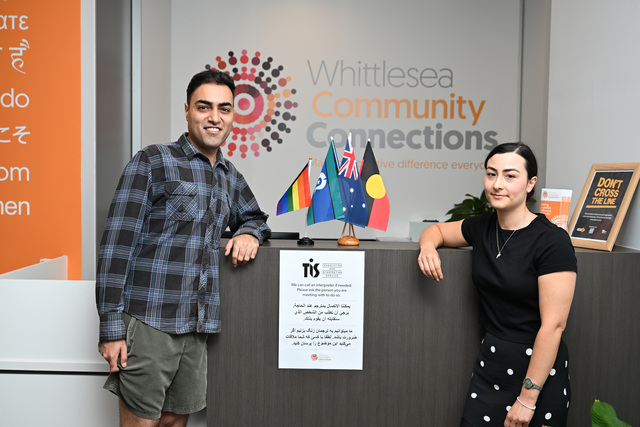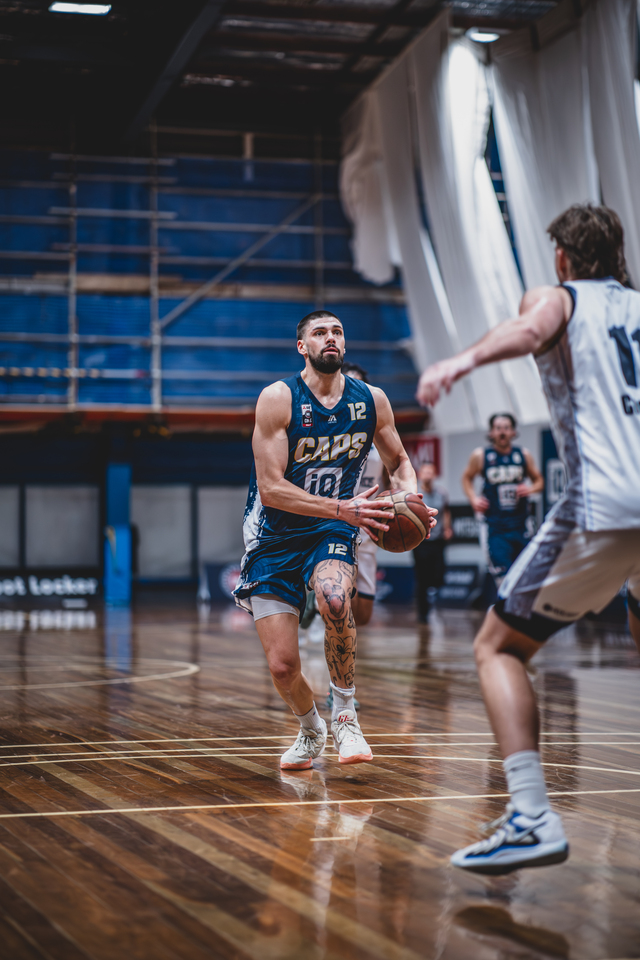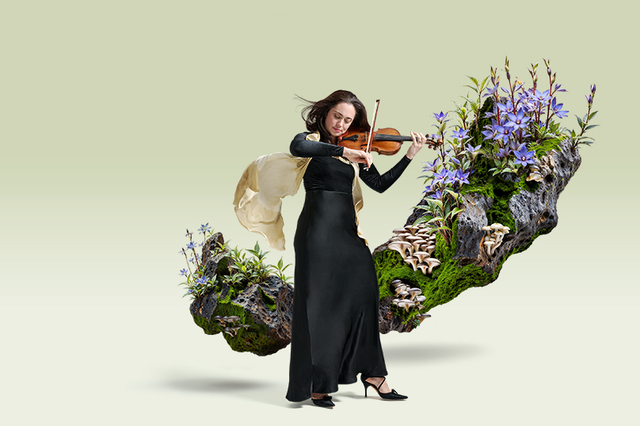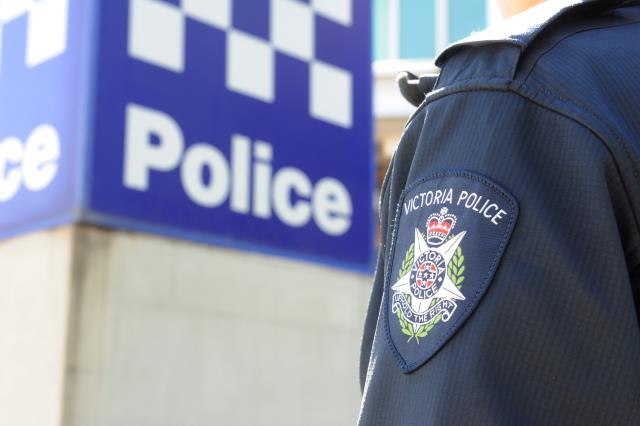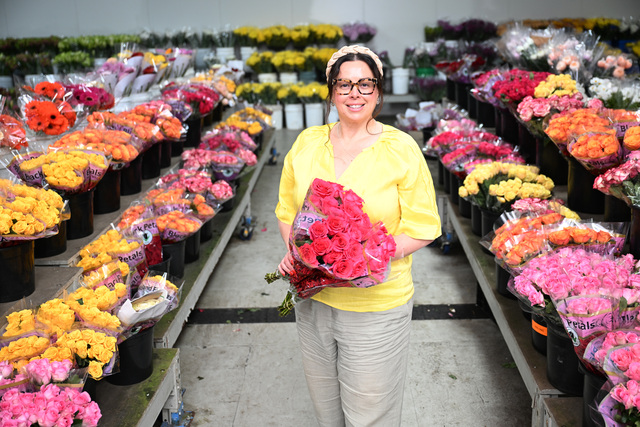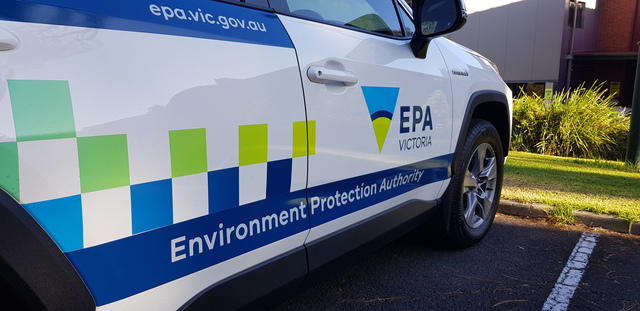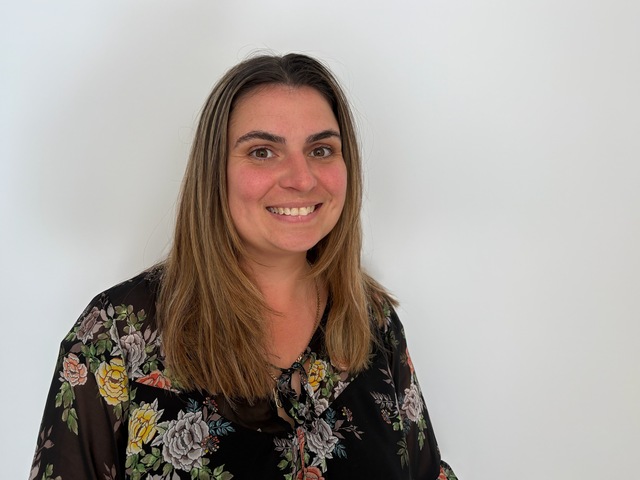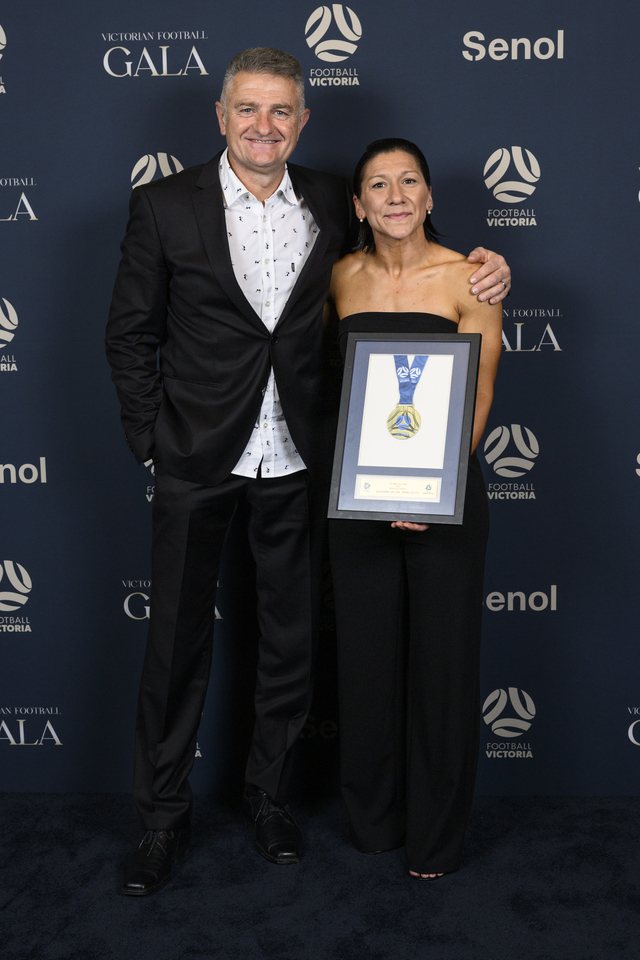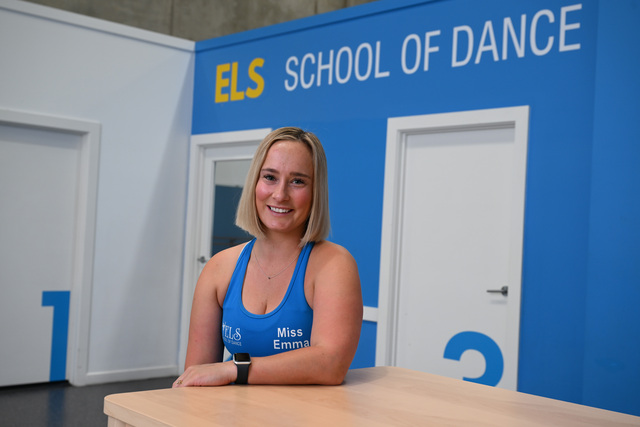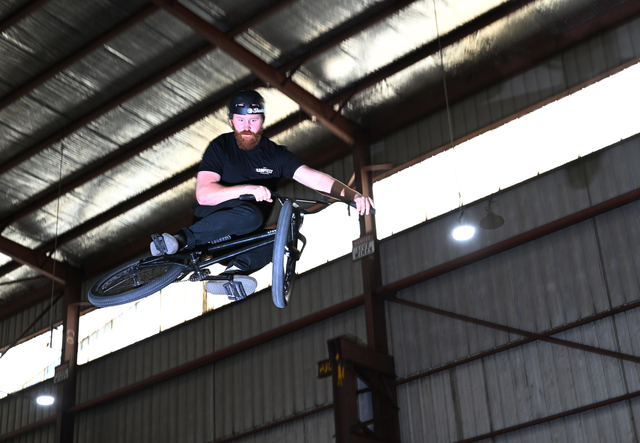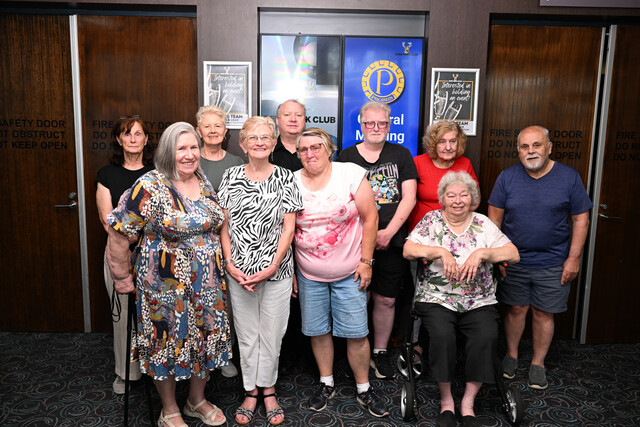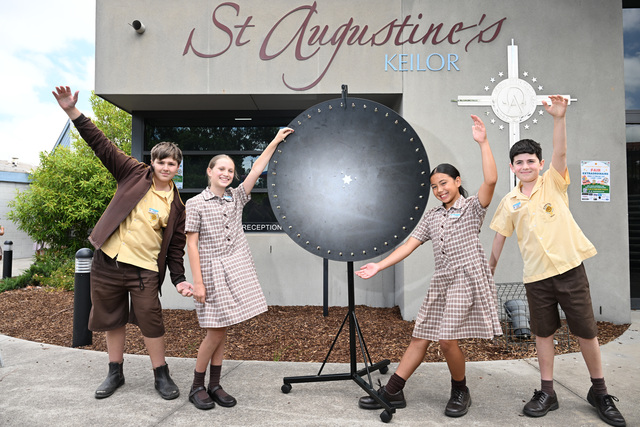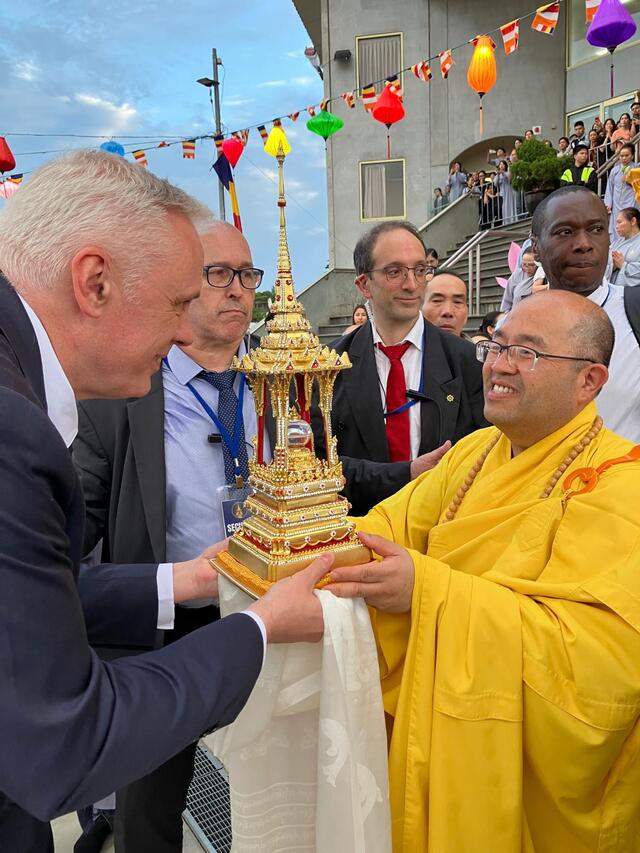SEE: Picture gallery of the World Barista Championships at the Showgrounds
A St Albans coffee-maker has represented Australia with distinction at the barista Olympics.
FOR Lachlan Ward, making coffee isn’t just a job; it’s a perfectly poured work of scientific art.
What began as a part-time job working as a barista three years ago has become a way of life.
The St Albans resident, 24, lives, breathes and excels in his artform as head barista of the acclaimed Sensory Lab in Melbourne CBD, a cafe owned by Melbourne coffee institution St Ali Coffee Roasters.
According to Ward, the secret formula to making the perfect coffee begins with a careful blend of freshly harvested seasonal coffee beans.
“There is a science to making a perfect coffee,” he insists. “You need to understand what’s going on in your espresso machine, you need to be in tune with what you are doing.
‘‘A lot of the time it’s by eye, by careful observation. But there is also a quantitative science behind what we do, a chemical equation.”
The budding barista had modest beginnings in coffee-making, starting out at a Humble Pie Cafe in New South Wales when he was 17. It was there he discovered his love of making coffee.
But Ward has come a long way since then. Earlier this year, he finished third in the Victorian Brewers Cup competition and went on to win the national Brewers Cup.
Last month, he represented Australia at the World Barista Championship – in the Brewers Cup category – held for the first time in Melbourne.
Ward spent six months training for the gruelling championship in which he competed against 52 international baristas. Each competitor performed a meticulously detailed routine in front of a live audience at a jam-packed indoor area at the Melbourne Showgrounds.
The competitors were examined by seven judges and had just 15 minutes to make four espressos, four cappuccinos and four of their own signature drinks. Points were awarded for taste, technique, look, professionalism, accuracy and consistency.
“It was an electric buzz of really inspiring people who were pushing the boundaries on how we make and think about coffee,” Ward says. “The beauty of it was the competition room was full of people who were just as inspired and interested in coffee as I am.
‘‘We were making coffee for the most receptive customers we will ever have, competing against the best baristas the world has to offer.”
Ward finished eighth in the world.
He now has his sights set on travelling next year to Kenya and Ethiopia, home of the original coffee trees.
“I want to learn more about the farming aspect of the coffee process, learn more about the origin of where the product comes from and the process it goes through before it lands in the glass.
“I’m really lucky in that I spend my days doing something I’m passionate about, and I’m surrounded by good people at the lab, people who inspire me and who seek to be the best at what they do.”
Fellow St Ali barista Matt Perger also competed in the championship, finishing second in the world behind American newcomer Pete Licata.
Perger was crowned NSW barista champion in 2010, Australian champion in 2011, and finished third at the world barista championship in 2011. He’s worked for Melbourne coffee institutions Market Lane Coffee and Axil Coffee Roasters.
St Ali sponsored professional coffee taster Ben Kaminsky from San Francisco to be Perger’s coach in the lead-up to the competition.
Ward and Perger were joined by Canadian barista Josh Tarlo, 25, who travelled from Toronto to represent his country and finished third in the world.
Tarlo has been a barista for six years for Pig and Iron Coffee Roasters and works at the Lit Espresso Bar in Toronto.
He qualified for the championship after winning the Canadian Brewers Cup championship in April.
Tarlo says the key to excelling in the coffee-making trade is falling in love with all aspects of the process.
“You need to fall in love with the biology of the coffee, the customer service aspect, the experience of making,” he says.
“You need to be passionate about what you do because coffee is a very subjective thing. What’s a good coffee to one person may not be a good coffee to somebody else. You need to know what the consumer wants, whether they want a rich strong coffee or something sweet and chocolatey.
“I see myself as the last step in a very long process, so if I mess up I feel like I’m letting down all the hands that have touched those beans along the way.”
Owner of St Ali Coffee Roasters, Sal Malatesta says Melbourne was selected to host the championship because it is leading the global ‘‘coffee renaissance’’.
Malatesta says acclaimed baristas like Perger, Ward and Tarlo are pioneering a new brewing method which is sending shockwaves through the global coffee scene.
St Ali was selected to represent Australia in the championship for the fourth time this year and finished second behind America and ahead of Ireland, which came third.
St Ali are veterans in the international coffee scene, winning the world championship last year and finishing in the top three in the world in 2011 and 2010.
Malatesta says the vibe at this yea’s expo was ‘‘electric, emotional and patriotic’’.
He predicts specialty coffee circles will continue to progress in a move away from commercial coffee roasters.
St Ali recently purchased a coffee farm in Columbia, and Malatesta says he’s working in partnership with local farmers in South America to revolutionise coffee in Melbourne.
He says he wants to go to the regions of origin for coffee beans and invest in understanding farming and harvesting techniques to seek out the best-quality product.
“We are seeing a trend in the deconstruction of brewing equipment and revisiting old brewing methods in Melbourne,” he says.
“Commercial-grade roasters are already seeing that this specialty movement is not a fad; it’s a coffee movement.
“There is a huge passion for specialty coffee in Melbourne, driven by eight to 10 individuals who are paving the way and are committed to linking the soil to the cup.”
For Malatesta, coffee isn’t just business; it’s a way of life.
“Coffee is a drug and with every drug there’s a ritual,” he says. “That ritual has been part of my life for as long as I can remember.
‘‘It isn’t a part-time business, it’s a lifestyle choice.”

